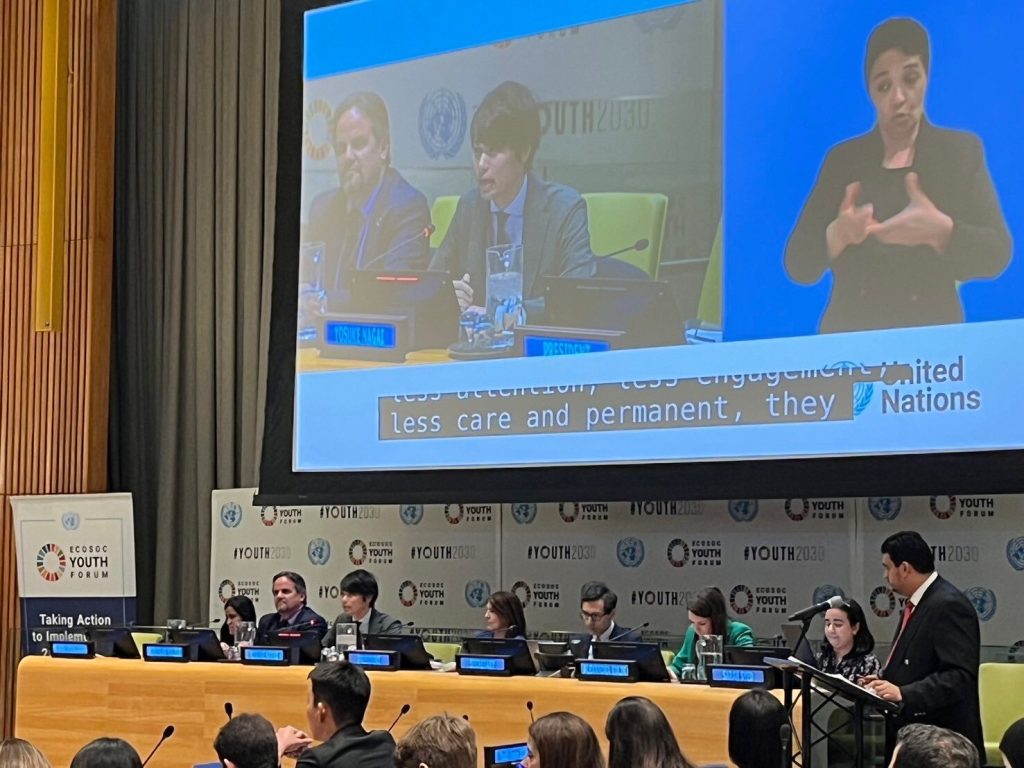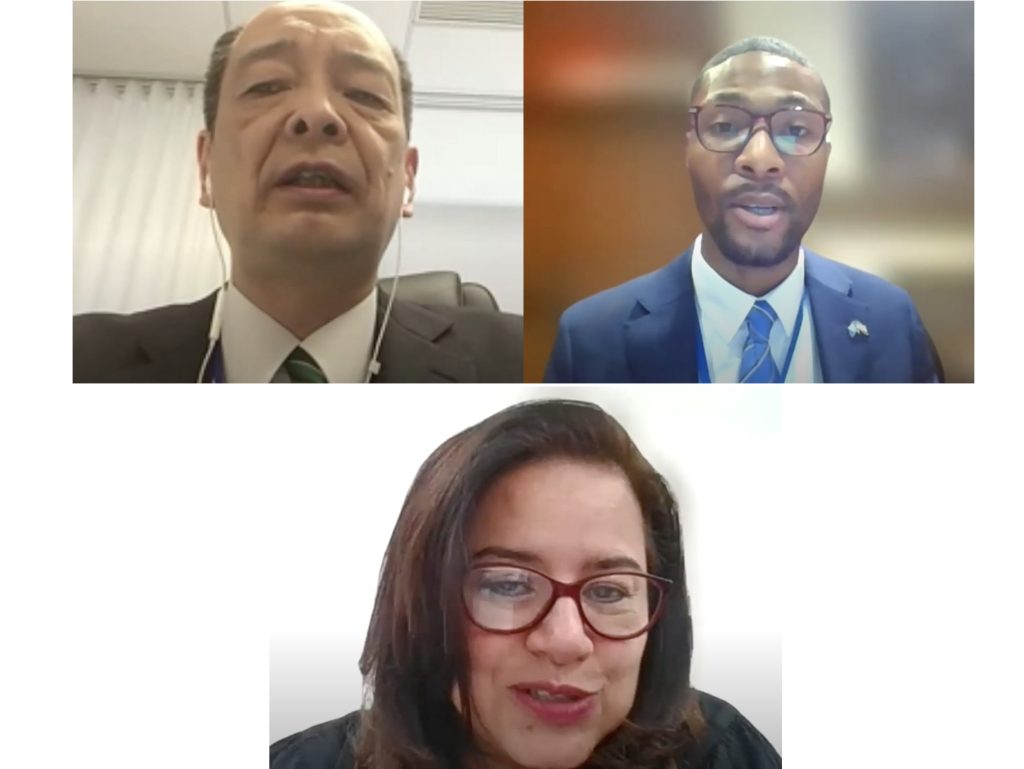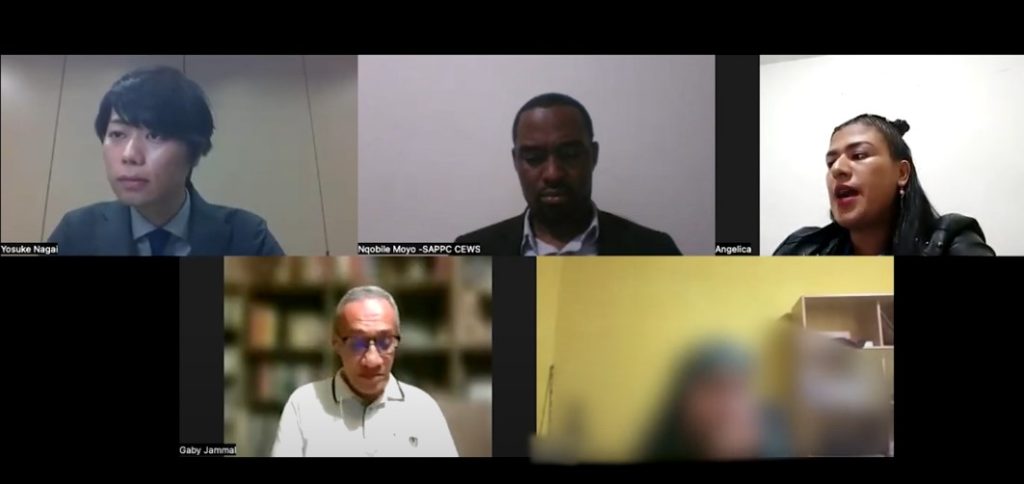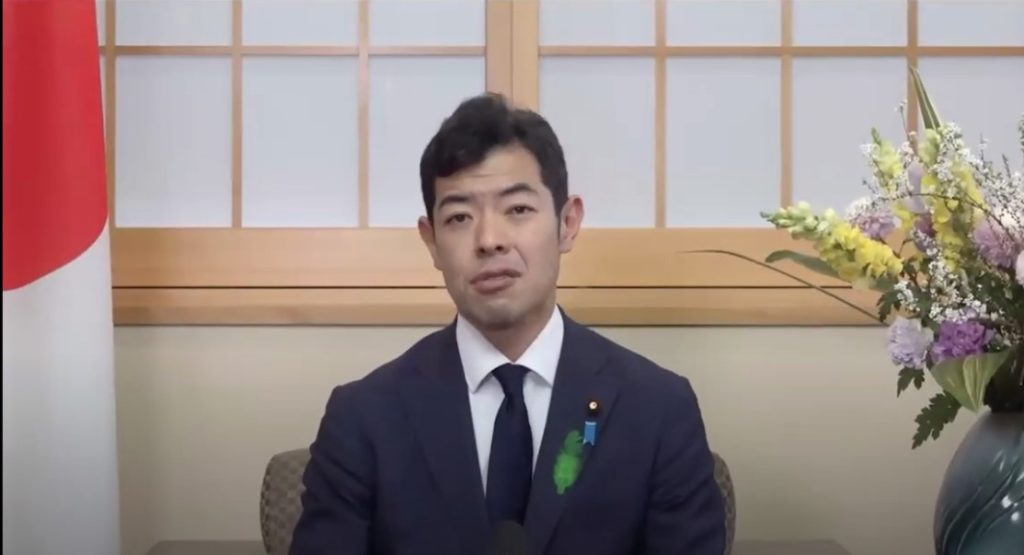May, 2024

In addition to working on the frontline of the conflict zones such as Somalia and Yemen, we are also working to establish an international framework for the protection of Youth Associated with Non-State Armed Groups (YANSAG).
This time, we will report on an official side event of the Youth Forum held by ECOSOC (United Nations Economic and Social Council) in April as part of efforts to establish such international norms.
Background and Purpose of Holding the Official Side Event of the Youth Forum
On April 18th, alongside the UN General Assembly, the UN Economic and Social Council (ECOSOC), one of the UN’s main organs, held an official side event for its Youth Forum online.
The purpose of this event is to raise international awareness of the situation, issues, and needs surrounding YANSAG, and to discuss how the international community can address their education and empowerment.
Youth who are or have been involved with non-state armed groups such as so-called violent extremist organizations are vulnerable and important in peacebuilding, but they face serious challenges, particularly a lack of education and empowerment opportunities. However, the existence of these youth has not been adequately recognized or discussed in national policies or in the international community.
The event featured international policymakers including Ambassador Osamu Yamanaka of Japan to the United Nations, State Minister for Foreign Affairs Kiyoto Tsuji, government officials from Sierra Leone and Colombia, peacebuilding experts, and two youths involved in the conflict.
Here we present excerpts from that discussion.
Discussion at the Side Event
The symposium began with remarks from Mr. Osamu Yamanaka, Mr. Mohammed Olman Bangura, Minister of Youth of Sierra Leone, and Ms. Alejandra Miller Restrepo, who works at the Colombian Presidential Office to support the reintegration of former combatants into society, calling for the potential of young people, including those involved in conflict, and the need to address the issues they face, particularly those related to education.
 ▲(Left) Mr. Yamanaka, (Right) Mr. Muhammad, Minister of Youth of Sierra Leone (The picture is by his representative)
▲(Left) Mr. Yamanaka, (Right) Mr. Muhammad, Minister of Youth of Sierra Leone (The picture is by his representative)
Panel Discussion
The panel discussion featured Nobile Moyo, who works for a peacebuilding organization in Zimbabwe; Gabi Jammal, a former combatant in the Lebanese civil war who now works for an NGO on peace and reconciliation; and two youths from Colombia and Somalia who are parties to the conflict.
Theme 1: Challenges YANSAGs face in accessing education and empowerment opportunities
Mr. Nobile Moyo: “Armed conflicts destroy basic infrastructure and prevent young people from receiving a proper education. In such situations, joining an armed group may be the most realistic and best option for young people who lack the skills to earn the income. Furthermore, if they do not receive adequate education, even if they do leave an organization, they are more likely to become radicalized again. Young people are therefore particularly vulnerable to the negative effects of armed conflict.”
Mr. Gabi Janmar:“In education, describing combatants as heroes can sometimes justify ongoing conflicts.”
Youth involved in conflict (Colombia):“Although I received a public education, it was of no use in finding a job or in everyday life. Also, as a former combatant, I have had difficulty renting a house and it continues to be difficult for me to find work. There are also high hurdles to going on to university, vocational school, or technical college.”
Youth involved in conflict (Somalia):“Under the control of Al-Shabaab (a non-state armed group active in Somalia), women face daily threats and forced recruitment, a lack of education and health facilities, and a shortage of clean water and food. Furthermore, compared to men, women are more completely marginalized in their communities and, even if they leave armed groups, they do not have access to adequate care, education or employment.”
The experts commented on the current and long-term impact of the conflict on young people, while YANSAG spoke about the realities of their daily lives, allowing us to reexamine the challenges facing young people from various perspectives.
Theme 2: Expected effects of education and how to provide educational opportunities
Mr. Nobiru Moyo:“In order to prevent young people from becoming radicalized, it is important to promote their economic independence. Governments are being called upon to develop action plans for peace and security for young people and women. Governments need to consider at the government level how to ensure their access to education, how to prevent young people from becoming radicalized, and how to provide them with opportunities to acquire the necessary skills.”
Mr. Gabi Janmar:“Even educated young people who lose their jobs could join extremist groups or forces. I believe that the most important thing in education is to teach people how to behave as human beings.”
Youth involved in conflict (Colombia):“Higher education, including university education, is a huge financial burden, and there is a shortage of universities, especially in rural areas. People cannot even secure the money to move to cities, making it difficult to receive a proper education. If universities were established in rural areas, people would no longer need to leave their hometowns. By receiving an education, we can earn money for our children, improve our lives sustainably, and contribute to our local communities.”
Youth involved in the conflict (Somalia):“In Somalia, many young women cannot read or write in their native language, so it is extremely important to provide them with basic educational opportunities, including literacy. I also believe that support to increase their ability to become independent and their resilience is extremely important, so that they do not get caught up in the cycle of violence.”
While experts provided their own perspectives on what is needed at the government level, young people involved in the conflict commented on the education they needed and its effects based on the economic and situational conditions in both Colombia and Somalia.
 ▲Five people engaged in an online discussion.
(Top left) Nagai, our organization’s representative; (top center) Mr. Moyo;
(Top right) A young person from Colombia; (Bottom left) Mr. Jammal; (Bottom right) A young person from Somalia
▲Five people engaged in an online discussion.
(Top left) Nagai, our organization’s representative; (top center) Mr. Moyo;
(Top right) A young person from Colombia; (Bottom left) Mr. Jammal; (Bottom right) A young person from Somalia
Closing Remarks
Finally, we received a heartwarming video message from State Minister for Foreign Affairs Kiyoto Tsuji.
Mr. Kiyoto Tsuji: “Young people have great potential to build peaceful societies. It is important to protect the right of young people, including women, to education and to provide them with opportunities for empowerment. Accept International is commendable for its various initiatives aimed at empowering young people who are or have been involved in armed groups. I am confident that this event will help raise awareness of their existence and potential and accelerate support.”
 ▲Video message from Vice Minister for Foreign Affairs Kiyoto Tsuji.
▲Video message from Vice Minister for Foreign Affairs Kiyoto Tsuji.
Summary
Receiving messages from government officials in Japan, Sierra Leone, and Colombia was extremely meaningful for us, as we aim to establish international norms while involving people from diverse backgrounds in Japan and around the world.
The event also served as an opportunity to draw attention to the existence of youth who are or have been involved with so-called violent extremist organizations and other armed groups, and to raise momentum toward realizing a world in which they can live as “youth.”
Future Outlook
Following on from the international symposium held by our organization in New York in October last year, this event brought together government officials, experts, and youth themselves who are involved in conflict, all of whom were able to deepen their understanding of the challenges they face and the educational and empowerment opportunities they need. We plan to hold more events like this in the future, both in person and online.
As we are active on the front lines of conflict zones, we will continue to connect the field with government and UN officials and various experts, and work to widely share the issues and needs of youth who are or have been involved with armed groups. We will also continue to work hard to establish international norms that will provide a basis for protecting them as youth internationally.
Activity Reports










